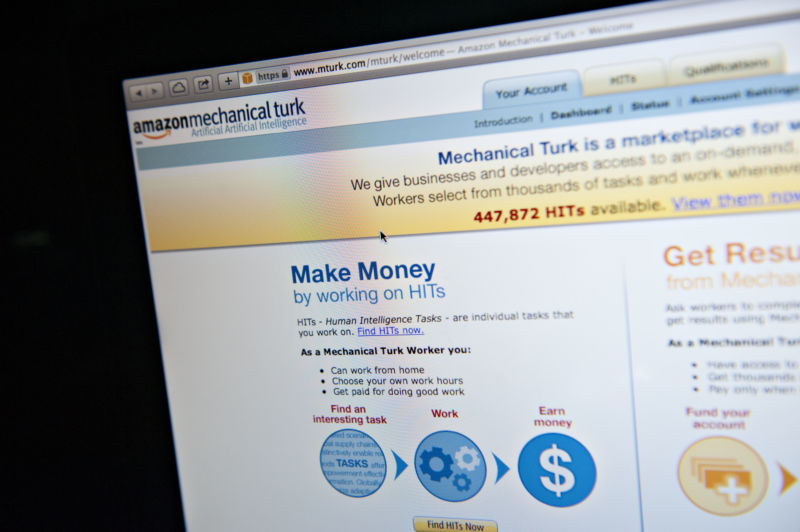Low pay, poor prospects, and psychological toll: The perils of microtask work

Enlarge / The Amazon Mechanical Turk, or mturk.com, website is displayed on a computer screen for a photograph in Tiskilwa, Illinois, U.S., on Wednesday, April 23, 2014. Photographer: Daniel Acker/Bloomberg via Getty Images (credit: Getty Images)
Microtask platforms recruit humans to do the rating, tagging, review-writing, and poll-taking work that can't quite be automated with an algorithm yet. In the US, the most common such platform is Amazon's Mechanical Turk, but other platforms are prominent in other parts of the world.
Proponents of this kind of work say that these quick, simple tasks allow people flexible hours to make money, or help "fill in the gaps" for the un- and under-employed.
But a new study (PDF) from the United Nations' International Labor Organization (ILO) questions whether these platforms are as good for society as the Silicon Valley investors and digital evangelists claim. The ILO surveyed 3,500 people across 75 countries who worked for Mechanical Turk, as well as Crowdflower, Clickworker, Prolific, and Microworker.
Read 9 remaining paragraphs | Comments